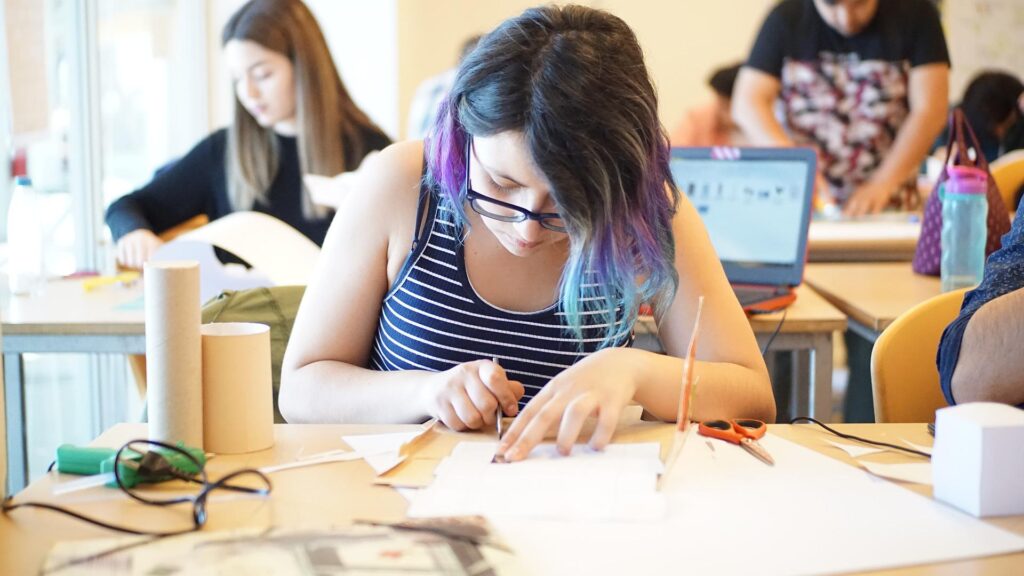High school maturity adjustment for exam-free access to universities
The Federal Council has launched the consultation process for the total revision of the Matura Ordinance (MCO) and the Administrative Agreement between the Confederation and the Cantons on the Recognition of Matura Certificates with the aim of adapting the baccalaureate degree to current challenges and continuing to guarantee exam-free access to universities for baccalaureate students. The consultation is being conducted in cooperation with the Swiss Conference of Cantonal Directors of Education (EDK) and will end on September 30, 2022.

Over the past two decades, as the social and cultural context has evolved, the Swiss education system has changed. Globalization and digitization, but also some topical issues such as participatory society and sustainability, exert an impact at both structural and pedagogical levels indicates a government note.
The “High School Maturity Development” project, launched by the federal government and EDC in 2018, aims to address these challenges
The federal government and cantons share responsibility for the high school baccalaureate. The latter is governed by the ORM, issued by the Federal Council, and the Regulations Concerning the Recognition of Baccalaureate Certificates (RRM), issued by the EDK.
The two pieces of legislation, which date back to 1995, need to be updated to ensure the quality of the baccalaureate throughout Switzerland on a long-term basis. In particular, the possibility for baccalaureate students to enter universities and pedagogical high schools without exams must be maintained.
The new basic commercial training will be offered in… 2023
Mathematics, new key disciplines and promotion of mobility
The main new features of the revision are the strengthening of basic skills in mathematics and the language of instruction, the addition of new core disciplines (economics and law, computer science), the extension of the offer of specific options, the promotion of exchanges and mobility during education as well as the introduction of the compulsory minimum duration of four years for baccalaureate cycles (in some Swiss cantons high schools last three years). For some topics, different variants will be presented and discussed.
In terms of content, the two pieces of legislation are identical. To avoid overlapping, the EDK has decided not to conduct a parallel consultation. The federal government and EDK will jointly analyze the results and finalize the texts of the MNO and RRM. Subsequently, the Framework Plan of Studies for Baccalaureate Schools, the consultation procedure for which will be initiated by the EDK, will also be revised.
The Administrative Agreement between the Federal Council and the EDK is being adapted to the federal corporate governance standards. Other changes concern the organization of the Swiss Baccalaureate Commission and the creation of a national forum dedicated to the baccalaureate and its development.

The Swiss school system in brief
Compulsory schooling in Switzerland lasts nine years. In all cantons, compulsory schooling is divided into primary and secondary level I, and each canton enjoys wide autonomy in education. This means there are 26 different school systems, united by some common elements, such as the length of compulsory schooling.
In some cantons it is compulsory to attend preschool (preschool level – Kindergarten) for two years before entering elementary school.
Elementary school is compulsory for all children and generally lasts six years, (in some cantons four or five years).
Secondary I level generally lasts three years, (in some four or five years) and is compulsory. This level provides basic general education including the local and two foreign languages, mathematics, geography and history and prepares pupils for vocational training or secondary level II schools (high schools).
The secondary II level, is not compulsory and is divided into two sectors: general education and professional education. The transition from secondary school I to high school can be made with or without an entrance exam depending on the canton. High schools prepare for entry to another grade of school and particularly to universities. The baccalaureate certificate allows access to all universities and the two federal institutes of technology. In some cases it is necessary to pass a language test, for example when a student from Italian-speaking Switzerland wants to study in German-speaking Switzerland. There are also the specialized schools in which general education is deepened and prepares for vocational training in colleges of higher education and universities of applied sciences, especially in the health, social, pedagogical and psychological fields, communication, visual arts, music and theater.
After the secondary I level, it is possible to choose a professional apprenticeship that combines practical learning in an apprenticeship company with theoretical teaching in a vocational school. The training lasts 2 to 4 years and ends with a federal certificate of practical training (2 years) or a federal certificate of competence. Conditions of access are regulated at the cantonal level.
The tertiary level of education is mainly divided into two camps, that of high schools and that of higher professional education. The colleges of higher education include the cantonal universities the Federal Institutes of Technology and the colleges of higher education.

Fonte: admin.ch





